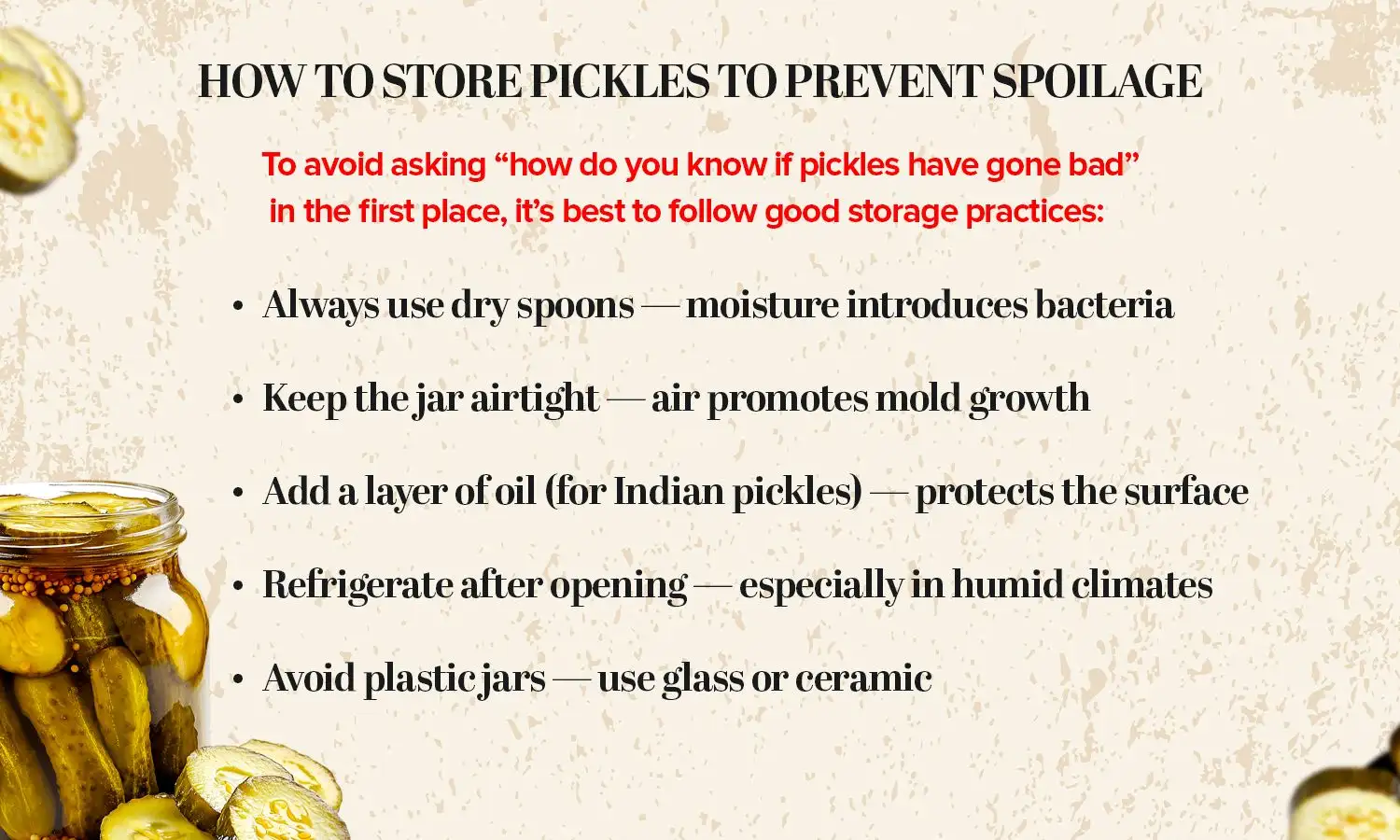How Do You Know if Pickles Have Gone Bad? Let’s Break It Down
Pickles are built to last—but that doesn’t mean they last forever. Whether you’ve opened a store-bought jar or popped the lid on your grandmother’s homemade batch, you’ve probably asked yourself: How do you know if pickles have gone bad?
Spoiled pickles not only lose their taste but may also cause health issues if consumed. Fortunately, pickles give off clear warning signs when they’re no longer safe to eat. In this blog, we’ll explore how to tell if your pickle has spoiled, what smells or textures to watch out for, and how to store them the right way.
Let’s understand how to recognize the signs of spoiled pickles and ensure your jar stays safe and flavorful for months.

Common Signs That Pickles Are Spoiled
- Cloudy brine with bubbles: Natural fermentation causes cloudiness, but if it turns milky or foamy, it could be contaminated.
- Mold on the surface: Any visible mold (white or fuzzy) means the pickle should be discarded.
- Slimy or mushy texture: Pickles should stay crunchy. Slime = spoilage.
- Unusual smell: If it smells sour in a bad way, not tangy, toss it.
- Change in color: Discoloration or fading is a sign of bacterial activity.
Recognizing these pickle spoilage signs early can help avoid food waste or stomach troubles.
What Does a Bad Pickle Smell Like?
One of the most telling signs that your pickle has gone bad is the smell. A properly preserved pickle has a sharp, sour, slightly fermented aroma.
- Rotten or sulfur-like
- Musty or metallic
- Overwhelmingly pungent or chemical

How Long Do Pickles Last in the Fridge?
- Store-bought sealed jars: 1–2 years unopened
- Opened jars in fridge: 2–3 months
- Homemade pickles: 1–2 months if refrigerated and stored well
- Quick pickles: 1–2 weeks at best

How to Store Pickles to Prevent Spoilage
To avoid asking “how do you know if pickles have gone bad” in the first place, it’s best to follow good storage practices:
- Always use dry spoons — moisture introduces bacteria
- Keep the jar airtight — air promotes mold growth
- Add a layer of oil (for Indian pickles) — protects the surface
- Refrigerate after opening — especially in humid climates
- Avoid plastic jars — use glass or ceramic
Conclusion
Key Takeaways
- If you’re asking how do you know if pickles have gone bad, look for mold, slime, discoloration, and foul smell
- Pickles can expire, especially when not stored properly
- Homemade and quick pickles spoil faster than commercial ones
- Dry spoons, sealed jars, and refrigeration help prevent spoilage
- Trust your senses—when pickles seem off, throw them out








